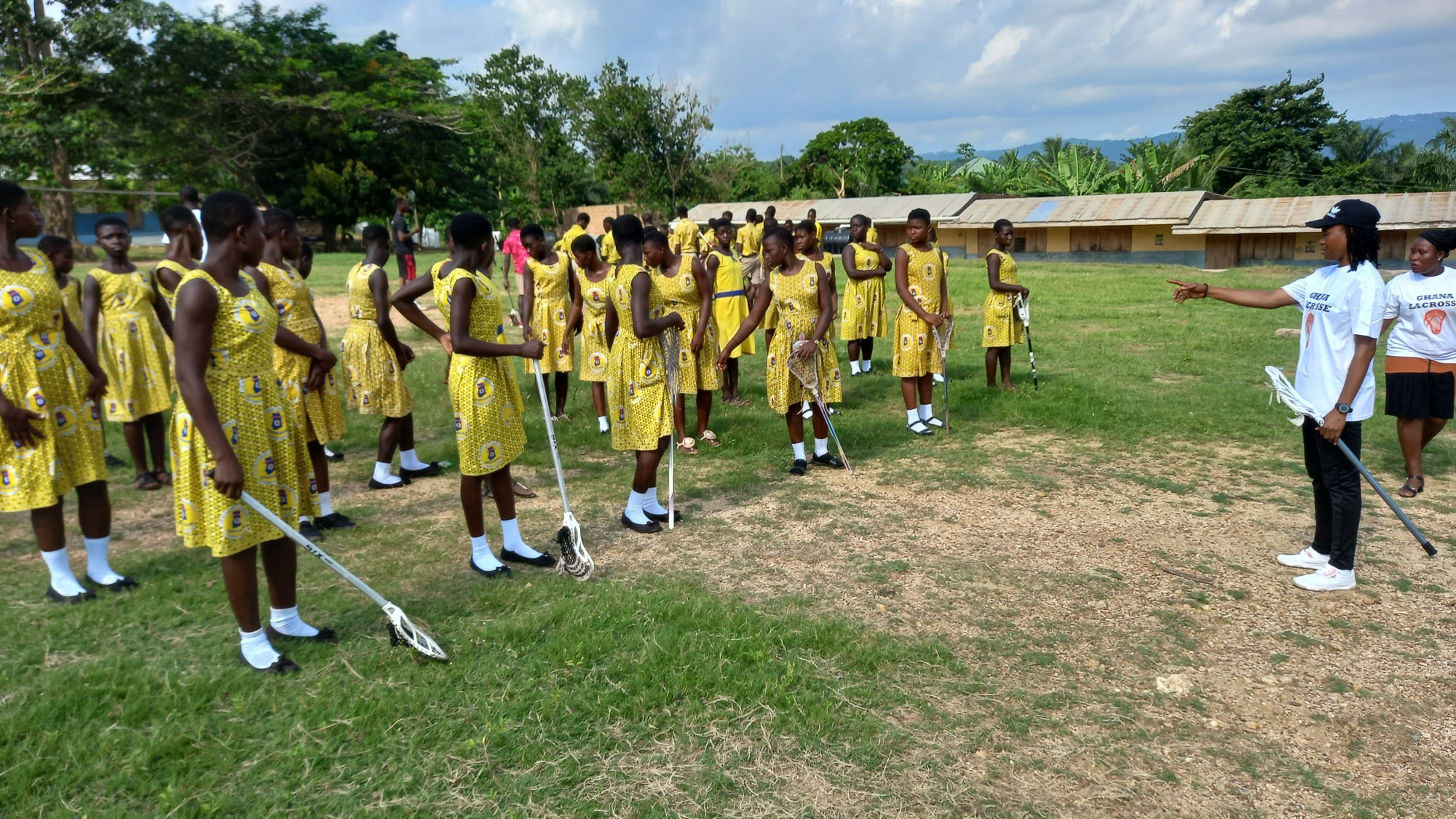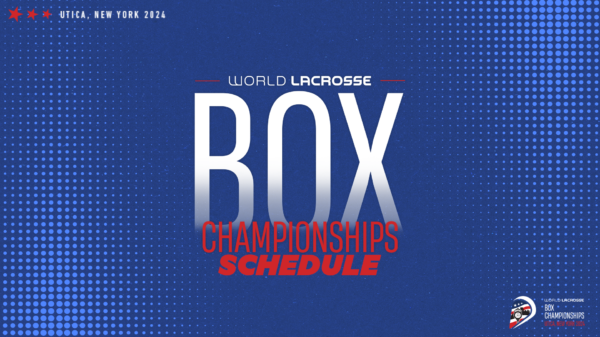Developing a new sport in a small country like Japan or the Netherlands is an enormous challenge; developing a new sport across an entire continent the size of the United States, China, India, Japan, Mexico and much of Europe combined amplifies that challenge by multiple orders of magnitude.
But that’s what Rufus Ntiamoah, the World Lacrosse manager of sport for the continent, and leaders of the National Governing Bodies are trying to accomplish in Africa. Through online academies, training of physical education teachers, the decentralization of the sport and other initiatives, Ntiamoah has seen great progress in expanding the sport’s reach.
Still, there is more work to be done.
Equipment is not always easily accessible, there are only so many volunteers who can help work to spread knowledge of the game, and of course, financial support plays a role in how much can be accomplished.
“People who love the game should find a way to get to Africa to help us grow,” Ntiamoah said. “There are a lot of people who have been a part of lacrosse for a long time, but they must understand that this is new on the continent. We have space to accommodate anybody who would like to travel to Africa and help us grow and sustain the game.”
***
One of the key focuses for Ntiamoah when approaching building lacrosse is decentralizing the sport. That might sound counterintuitive; having centralized events and governance would seem to provide more stability for long-term growth. However, due to the sheer geographic size of the continent, it’s just not a practical approach.
The 4,000-mile spread from Egypt to South Africa is almost as long as the distance from Ghana to New York.
“If we’re saying that we’re going to keep the game at one spot, that means when you have a tournament, all the participants must fly to one country, which is going to use more money paying for airline tickets,” Ntiamoah said. “When there are regions, West Africa can have their competition, East Africa has their competition and South Africa can have competition.
“It’s cost effective when you decentralize the game on the continent, by having each region play in its own league and (then) having the top players meeting at one point.”
The process of decentralization has also been made easier through an online academy that Ntiamoah and his team spearheaded. In 2020 when the COVID-19 pandemic prevented people from playing, the Ghana Lacrosse Association (for which Ntiamoah previously served as president) decided to figure out a way to connect with lacrosse organizations in other parts of the continent and form new member federations in World Lacrosse.
The GLA couldn’t afford to have a prolonged stretch without people having the chance to play. Any progress they’d made before the pandemic could have been significantly stunted.
“We did an online academy with seven countries and it was so effective,” Ntiamoah said. “They were asking questions, and we are able to provide guidance in rules, development, sustainability, marketing, anti-doping, first-aid and governance. Overall, the academy allowed us to bond with people and help them grow the game.”
The platform also provided a clear outlet for spreading the sport’s ideals and underlying philosophies.
“Effective communication is key here,” Ntiamoah said. “What we stand for, who we are, our policies and some of the rules that govern the sport are also very important.”
This, they hope, helps grow passion for lacrosse.
“All we want is for members to catch the spirit of the game,” he said.
***
In Ghana, Ntiamoah also highlighted their use of holidays to inspire participation in lacrosse.
Certain countries make it hard for women to play the sport. In Ghana, they used World Menstrual Hygiene Day as an opportunity to promote the involvement of girls and women. Last year, approximately 150 girls had the chance to learn about lacrosse as well as personal hygiene and the importance of education and strong academic performance.
They also use Zero Emissions Day to highlight the importance of sustaining a healthy natural environment around them, including clean drinking water. Players are asked to run, walk or ride their bicycles to reduce carbon emissions responsible for global warming.
Infiltrating schools is another key component to their plans – as is using equipment the schools might have to help grow the sport in local communities.
They’ll even work with physical education teachers to broaden familiarity with lacrosse.
“In Ghana, every year we turn out 200 physical education teachers,” Ntiamoah said. “Each teacher has to assess 250 kids. When you do the math, over 10 years, we’re looking at over 500,000 people taught lacrosse through PE teachers.”
Overall, spreading the game through schooling infrastructure, from primary schools through the collegiate level, helps use the strength of community and already available resources to kickstart the game’s growth.
Another key in growing and developing the player pool across the continent has been the sixes discipline, and its strength in accessibility has accelerated growth for new members.
“Once we have potential athletes complete basic training, the first thing we can do is have them start playing sixes as fast as possible,” said Ntiamoah. “They can practice and hone their skills faster, and I believe this should be a blueprint for development in every country.”
That growth remains front of mind to Ntiamoah as he forecasts the future of the sport across Africa.
As he emphasized, there’s always strength in numbers.
“If we keep growing this game at this speed, we will get to a time when if you’re playing competitive leagues, the venues are going to be full,” he said.






